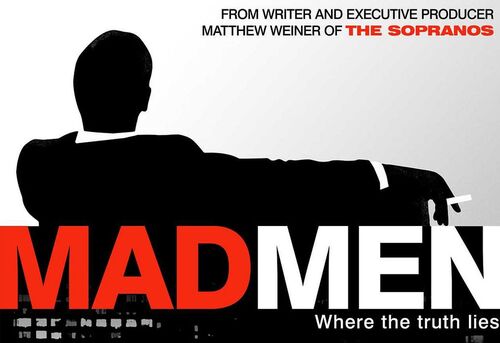
Bending Linearity - The Films of Alejandro G. Iñárritu: Part 1
 If filmmaking can often be a looking glass into the past and present, pieces that reflect a time period - a certain majesty that resurfaces nostalgia for some and a glimpse into a never-seen history for others - then Iñárritu instead looks to dabble with alternate cultures and people. A different eye into the unknown.
If filmmaking can often be a looking glass into the past and present, pieces that reflect a time period - a certain majesty that resurfaces nostalgia for some and a glimpse into a never-seen history for others - then Iñárritu instead looks to dabble with alternate cultures and people. A different eye into the unknown.
His first feature takes place in his home country of Mexico, fittingly. Amores Perros is a film that floats peacefully below the tier of big budget films, a foreign film nominee in the Oscars of 2000. The plot is tame when compared to the films that come after it, but the director made his intentions clear with a non-linear structure making up an 'anthology' film. It introduces us to three different points of view at three different times connected by one incident.
He took non-linear storytelling a step further with his next, 21 Grams, but mastered it with his third, the final in what he proclaims a trilogy of sorts, in Babel. In three films, he trekked five different cultures to display a world less divided and more misunderstanding of one another.
In each film there is one moment that instigates everything that comes after it (and sometimes before, or even during, it). It's never shown in chronological order except, perhaps to some extent, in Babel. In 21 Grams, it's shown in pieces, fragments of time, so sporadically tossed throughout the film that it takes absolute concentration, and it might at times get away from even the director. Instead of building to its climax, the film invites us to piece it together ourselves. By the time we near the end of it, we get it. But there's no hand-holding here.
There is something less frustrating and more gratifying about playing catch up. Iñárritu plays a god-like role, only telling us what he wants us to know, and only in the order he wants us to learn it. The events that play out in 21 Grams have already happened. It's all history from the moment the film begins to when it ends. For that, the climax might feel a little hollow, but the journey is more engaging on an emotional level. It's a kind of mind game, a puzzle.
Amores Perros features the line, uttered at two different moments, “then when?” It’s a line that in many, less overt ways sums up the film itself. It speaks of human desire, the need for something more, the want to give and give until it has gone on too long. Until it’s time to take. Angling a microscope to the human condition is what truly makes up Iñárritu's trilogy. Each film observes a different kind of suffering.
21 Grams takes its characters to the edge. One has already come back once, turned to god, only to feel as if he’s been spat on by the lord himself. But every character is suffering. One is given a lease on life, and it changes his outlook on everything. Another loses every reason to live; her family. And it is so confronting simply for the fact that we're shown real life, real people, real (and horrible) experiences. She finds help at the bottom of a bottle, but longs for something more fulfilling. “Life goes on” is spoken at various times, until one character demands that life actually doesn’t just go on. Each character is shaped and defined in much clearer ways, their personalities far more stereotypical than in Amores Perros (to the fault of neither film).
Where the director truly shows his spark is in those confronting moments. He cuts the music, staring the camera straight at those who are suffering. He dares us to pay attention. Often, he doesn't even show the very person who the spotlight is supposedly on. He shows characters on the outside, looking in just as we are.
In each film, there is an ‘other’, an opposing person or people that manages to, incidentally or not, rip apart one’s life. The other is so many things in Iñárritu's films. They can literally be those that cause pain. The driver of the vehicle, the ‘terrorist’ with the gun. Different cultures. Different languages. There is division, ignorance, speculation and assumption within all of the primary characters, a worldview that’s wholly their own. And there is such emphasis on their views of the world that the multiple points of view are an absolute necessity in the deliverance of these stories.
From the ashes of all of these things, all of the ignorance or assumption, gathered from the mistakes and the poor choices, there is self-awareness and self-recognition to be found. Each character has their moment. It’s a main character as he stands in wait for a woman that is not coming to join him. It’s a husband sitting beside his dying wife, with the kind Moroccan tour guide sitting opposite him in the room.
These films could very easily have examined the hatred of humans, people and their ability to inflict pain on those they don’t know. Babel in particular veers away from any of these standard preconceptions, and instead lets ignorance lead to self-discovery, and ultimately it leads to a film that is about the recovery of relationships.
In no small way, too, the weakest and the most innocent are the victims of each protagonist in the trilogy. Dogs, as I’ve mentioned, are fought in order to make money. Many die (though not in the making of this film, as the opening tells us), and not always in battle. Children are victims, very explicitly in 21 Grams, less obviously in Babel. And yet as much as relationships play an integral role (father and son, man and wife), the absence of relationship due to division between cultures, divisions that often seem bigger than they perhaps are, is just as integral.
If Amores Perros and 21 Grams are about tearing down relationships, and seeking out petty and insignificant salvation in a world full of negative experiences, then Babel begins to repair all that. The trilogy is a homage to humanity, and Iñárritu's own vision of it. He doesn’t tell of a crippled world, but the trilogy is subtitled 'the death trilogy'. It’s about a people too lost in the dark to understand it all.
Storytelling and filmmaking are different things. Alejandro G. Iñárritu is a masterful storyteller. He knows how to fill out his characters. Plot-wise, structurally, he can arguably get carried away. But for the messages he clearly wanted to deliver, this is how he saw fit to present them. Not everyone will take to them. But art never has unanimous praise heaped on its bones.


